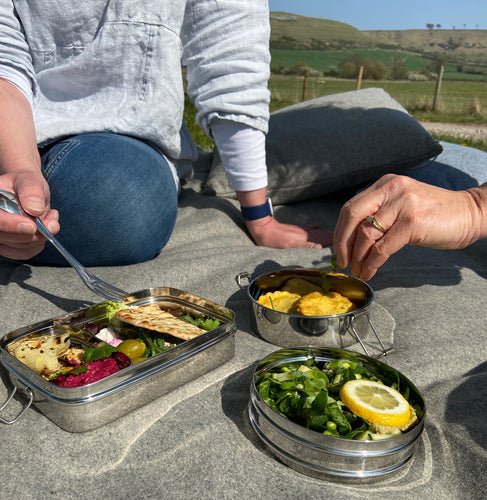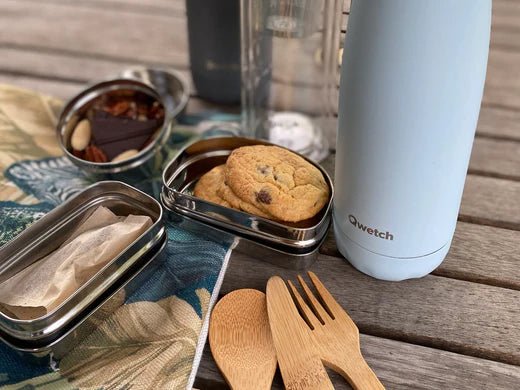Impact of the cost of living crisis on the environment
Households in the UK are facing the largest hikes in the cost of living in over 30 years. In the last year we have seen huge hikes in mortgage rates and continue to feel the effects of higher food prices. Although energy and fuel prices have stabilised they are still considerably more than 5 years ago and households are still struggling to meet all the costs.
Around 4 in 10 adults (41%) who pay energy bills said it was very or somewhat difficult to afford them. This was compared with 47% during a similar period one year ago (December 2022) (Office for National Statistics)
In times like this, can people afford to be concerned about the environment?
➤ CLICK HERE FOR 100 ECO FRIENDLY WAYS TO SAVE MONEY
Lower disposable income will mean people having to make choices. Choosing cheaper options while food shopping is one way to do this. This may mean choosing less organic or free range produce. These products usually have a lower environmental impact.
People may also avoid spending on reusable items water bottles, snack & lunch containers, and hand wipes as they require more of an upfront investment than cheap disposable items, for instance a cheap bottle of water, or sandwich grabbed from a supermarket. So there is a real fear that single use and therefore waste and pollution will increase.
The main impact the current crisis could have on the environment, however is derailing the plan to be 'Net-Zero' by 2050. Net -Zero is the UK Government's commitment to extract as much carbon as it emits into the atmosphere, halting our impact on climate change. If the Government cannot afford to invest in large projects to achieve this - will it fail?
The truth is, this needs different thinking.
We cannot afford to keep going the way we are, so things need to change.
And financial incentives are the greatest motivators for changing human behaviour! Energy efficiency in our homes and business, changing how we travel and waste reduction will all lead to lower carbon emissions. All will bring us closer to our goal of Net Zero.
The Office for National Statistics revealed that just under half (48%) of adults in Great Britain are using less fuel, such as gas or electricity, in their homes because of the rising cost of living. Although around one in five (20%) adults reported being unable to keep warm in their home in the past two weeks (13% occasionally, 5% hardly ever, and 2% never). The Government have set up a 'Help for Households' site and we recommend having a look if you are struggling.
As costs of heating your home increases, it will become more cost effective to insulate homes or change fuel sources and heating methods. Government and local council help for upgrading boilers/heating systems or changing to low carbon systems does already exist, and it needs to improve. These methods will reduce bills by reducing fuel use which in turn reduces our emissions. As more people invest in renewable heating sources, their prices come down and more people will be able to afford them.
The Government needs to ensure that the 'Future Homes and Buildings Standard' is fully implemented. This is a set of standards to ensure new homes built from 2025 will produce 75-80% less carbon emissions than homes delivered under current regulations.
Rising cost for petrol and diesel will mean people will try and use their car as little as possible. Public transport or alternatives such as cycling and car sharing will become more attractive. There will be an increased interest in electric cars which will push the technology forward and the prices down. All these will lead to lower emissions.
Food waste is a big cost in the UK - The consumable food we waste costs the UK £19 billion. That adds up to £284 for every single person in the country.
Households alone got rid of edible food worth £13.8 billion.
If you split that between all of the UK’s 28.1 million households, each home would save £491 per year. (wrap.org.uk)
If disposable income is lower it will incentivise people to reduce this waste, which will lead to a huge reduction in environmental impact.
Purchasing single use and disposable may seem like a cheaper option, but it is only over the short term. We can help people understand the savings that they will make over a longer period of time if they switch to reusable items in their daily lives. And make sure that these swaps are affordable to start with.
Whilst it seems like we are being pushed away from our path towards sustainability, this current crisis might be the biggest opportunity for environmental change this century. As long as we respond with long term actions, and by we, I mean the Government, the energy sector, multi nationals, business, finance and consumers. It's not all down to you and us!
If you are looking for inspiration for changes yourself, have a look at our new Green Guide to Saving Money + the Planet. With over 100 tips to save you money whilst reducing your environmental impact, it is a good place to start!
We have just added a mini guide to the cheapest and most energy efficient methods of cooking: Air fryers, microwaves and slow cookers.
With rising costs and wages not able to keep up, consider each of your choices wisely, becoming a 'conscious consumer' will help you, and also help reduce waste and carbon emissions through unnecessary purchases.
To help reduce our own waste, we never through anything away unless it is unusable for anything! We have a long history of staff sales and donating raised funds to social and environmental campaigns. We also donate unsellable stock such as damaged lunchboxes to groups like forest schools to use for collecting sticks and leaves.
Our most most recent action is to bring the 'Outlet Shop' to our customers. Featuring end of lines and reductions products from Everyday Green and our sister ethical gift company Green Tulip, as well as some 'Not Quite Perfect' items we want to go to a good home. These will have minor cosmetic or packaging damage but still be perfectly usable. Purchasing wisely, means buying what you need, and if you can prevent waste at the same time, perfect!
Thanks for reading,
Kate




